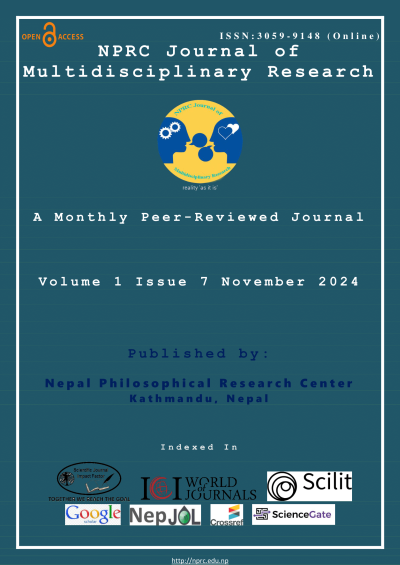Consumer Behavior on Organic Food in Kathmandu Valley
DOI:
https://doi.org/10.3126/nprcjmr.v1i7.72468Keywords:
Consumer, consciousness, organic food, premiumAbstract
The increasing consumer interest in organic food reflects a global shift toward healthier lifestyles and sustainable consumption. This study explores the factors influencing consumer behavior and the challenges faced by the organic food market. The objective is to identify the drivers of consumer preference for organic food and evaluate the barriers that limit its market expansion. A mixed-method approach was employed, combining an extensive review of relevant literature with the analysis of empirical data from surveys and market reports. Findings indicate that health consciousness, environmental awareness, and the perceived quality of organic food are the primary motivators for consumer preference, with a willingness to pay a premium price being common among consumers. However, challenges such as limited accessibility, high costs, lack of standard certification systems, and insufficient consumer knowledge about organic products undermine the market's growth potential. The study concludes that addressing these barriers through targeted interventions, such as improving supply chain efficiency, standardizing certifications, and increasing consumer awareness campaigns, could significantly enhance the adoption of organic food. The research contributes to the existing literature by offering a holistic view of consumer behavior in the organic food market, emphasizing the need for collaborative efforts among stakeholders to promote sustainable consumption.
Downloads
Downloads
Published
How to Cite
Issue
Section
License
Copyright (c) 2024 The Author(s)

This work is licensed under a Creative Commons Attribution-NonCommercial 4.0 International License.
This license enables reusers to distribute, remix, adapt, and build upon the material in any medium or format for noncommercial purposes only, and only so long as attribution is given to the creator.





